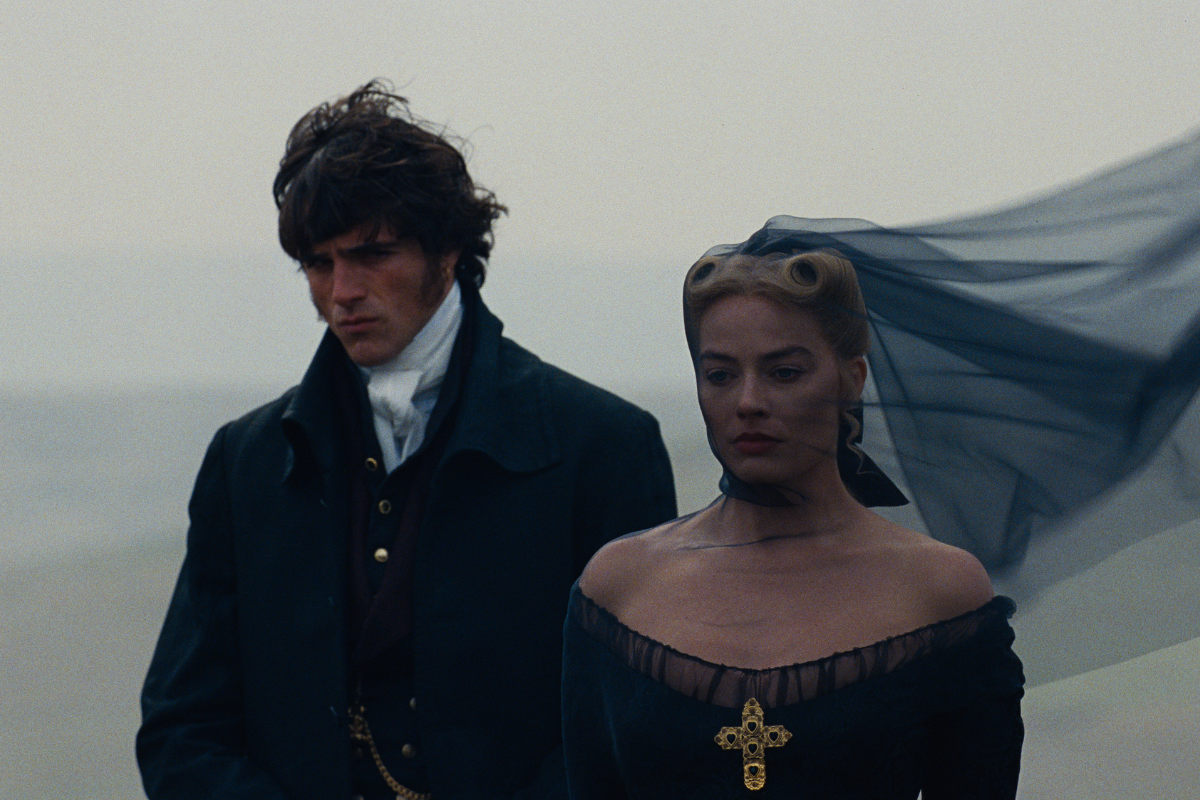‘Ballad of a Small Player’ Review
A hypnotic, hollow fable about gambling, ghosts, and the cost of losing yourself.
Edward Berger’s Ballad of a Small Player opens like a dream: Colin Farrell’s Lord Doyle, a once-dapper Englishman now drowning in debts and deceit, wanders the neon corridors of Macau’s casinos as if searching for absolution he knows he doesn’t deserve. The city is alive with color, light, and sin—a feverish labyrinth where hope flickers only long enough to destroy you. And while Berger’s filmmaking captures this world with hypnotic precision, the story beneath it rarely earns the same intensity.
Adapted from Lawrence Osborne’s 2014 novel, the film follows Doyle, a fugitive gambler running from both financial ruin and a buried crime back home. He’s a man sustained by illusion—“Lord Doyle” is a self-made title, his yellow gloves a talisman for luck that never arrives. By day he nurses hangovers in a grand hotel suite he can’t afford; by night he haunts the baccarat tables, betting with borrowed money and an arrogance that borders on suicidal. When he meets Dao Ming (Fala Chen), a mysterious loan broker who might just understand his sickness, the story begins to drift from the literal to the metaphysical. Is she his salvation, his punishment, or a specter of the life he’s already lost?
Berger directs with an almost obsessive visual clarity. Every frame glistens—reflections ripple across glass tables, smoke curls like memory, and neon pinks and greens bleed into each other until reality feels liquefied. It’s easily one of the most beautiful Netflix films to date, shot by Berger’s longtime cinematographer James Friend (All Quiet on the Western Front). The sound design hums with tension; Volker Bertelmann’s score swells and thrums, though sometimes too insistently, layering on drama the screenplay hasn’t earned.
The film wants to be both a psychological thriller and a ghost story—a meditation on guilt, greed, and rebirth—but it never quite decides which hand to play. The first hour promises a character study of addiction and moral collapse, a kind of Uncut Gems for the emotionally broken, but it soon drifts into abstraction. The script, adapted by Rowan Joffe (Brighton Rock), moves with the erratic rhythm of a gambler’s pulse: quick bursts of energy followed by long stretches of repetition. The supernatural elements introduced late in the game feel more like decorative mysticism than genuine revelation. What might have been a powerful metaphor for self-destruction instead becomes a muddled detour.
Farrell, to his credit, anchors the chaos. His Doyle is charming and pathetic in equal measure—a man who still believes he’s in control long after he’s lost everything. It’s a performance built on contradictions: elegance curdled by sweat, bravado masking fear, confidence dissolving into desperation. Watching him spiral is often the only reason to keep watching at all. Farrell brings such bruised humanity to Doyle that you wish the film met him halfway, offering a story as layered as his performance.
Fala Chen’s Dao Ming is introduced with intrigue but underwritten to the point of frustration. She hovers on the edge of the narrative, her motivations opaque, her presence more symbolic than emotional. The same goes for Tilda Swinton’s Cynthia Blithe, a private investigator tracking Doyle’s financial crimes. Swinton gives the role a sly menace—her scenes with Farrell crackle, but she’s barely in the film, another fascinating fragment left to drift in the haze.
Ballad of a Small Player often feels like two films competing for dominance: one a taut neo-noir about a gambler unraveling in a foreign land, the other a metaphysical morality play about damnation and rebirth. The tension between them is intriguing at first, but Berger never reconciles the two. The result is something that looks transcendent but feels hollow, like a winning hand that turns out to be counterfeit.
Still, it’s hard to deny the craftsmanship. Berger knows how to make despair look cinematic. The casino floors gleam like altars to greed; the sound of shuffled cards becomes a kind of heartbeat. There’s a rhythm to Doyle’s self-destruction that at times borders on hypnotic. And every so often, amid the smoke and spectacle, a moment lands—a glance, a whispered line, that hints at the profound story this could have been.
I kept thinking about Berger’s Patrick Melrose—a series that understood addiction and emotional ruin with rare clarity. That work had soul; Ballad of a Small Player has polish. It’s not without feeling, but the emotions are trapped beneath the glassy surface, refracted rather than expressed. Even the film’s final act, which flirts with the supernatural, feels like an elegant cop-out, a beautiful fade-out where a gut punch should have been.
There’s a tragic irony here: a film about gambling that refuses to take any real risks. Berger stacks the deck with style, but plays the hand too safely, leaving us admiring the table instead of caring about the player. Ballad of a Small Player is not without merit—it’s stylish, well-acted, and occasionally mesmerizing, but it’s also emotionally distant, a parable about self-destruction that mistakes surface shimmer for soul.
When the credits roll, the only thing left ringing in your head is the echo of what might have been. The neon still burns, the cards still fall, and Doyle still plays—forever chasing a luck that never loved him back.
Ballad of a Small Player is now streaming on Netflix.







